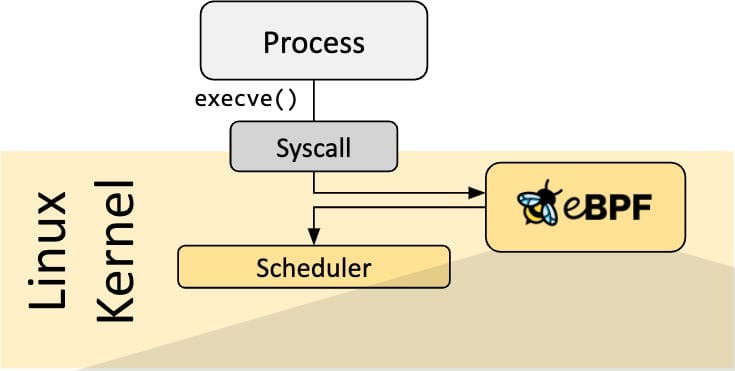eBPF: The Emerging Linux Kernel Technology Explained
Extended Berkeley Packet Filter, or eBPF, is a technology in the Linux kernel that has gained significant attention in recent years.

Extended Berkeley Packet Filter, or eBPF, is a technology in the Linux kernel that has gained significant attention in recent years.
It provides a powerful and flexible framework to create efficient, safe, and dynamic programs that can run within the kernel, improving performance and functionality.
What is eBPF?
eBPF is a Linux kernel technology that enables users to run custom programs within the kernel without modifying the kernel source code or loading kernel modules.
Originally, Berkeley Packet Filter (BPF) was designed for capturing and filtering network packets. However, its scope has vastly expanded, and it now encompasses a wide range of use cases beyond networking.
eBPF provides a virtual machine-like environment within the Linux kernel, allowing users to write, compile, and run programs that can interact with various kernel subsystems. These programs are written in a restricted C-like language and are executed by an in-kernel eBPF virtual machine (VM), ensuring safety and performance.
How eBPF Works
- Writing eBPF Programs: Users write eBPF programs using a restricted C-like language. These programs are event-driven and are triggered by specific events such as system calls, network packets, or tracepoints. eBPF programs can be written using the LLVM (Low-Level Virtual Machine) compiler collection with the BPF backend, which supports the eBPF instruction set.
- Compiling and Loading: Once written, the eBPF program is compiled into bytecode, which can be loaded into the kernel using the bpf() system call. This bytecode is platform-independent and can be executed on any Linux system with eBPF support.
- Verification: To ensure safety, the kernel verifies the loaded bytecode using a verifier component. The verifier checks for several conditions, such as illegal memory access, infinite loops, and proper resource usage, preventing potentially harmful or poorly written programs from running.
- Just-In-Time (JIT) Compilation: After verification, the bytecode is translated into native machine code for the target platform using a Just-In-Time (JIT) compiler. This step significantly improves performance by avoiding interpretation overhead during execution.
- Execution: The eBPF program is executed by the in-kernel eBPF virtual machine in response to specific events. The eBPF VM ensures isolation and safety while providing kernel data structures and functions access.
- Interaction with Userspace: eBPF programs can communicate with userspace applications using eBPF maps, key-value data structures shared between the kernel and Userspace. This allows for efficient and flexible data exchange between the two domains.
Use Cases and Applications
eBPF has been embraced by the Linux community due to its versatility and performance. Some of the most common use cases include:
- Networking: eBPF can be used to implement custom network functions such as load balancing, packet filtering, and routing, all within the kernel, providing high performance and flexibility.
- Security: eBPF programs can enforce security policies by monitoring system calls, network activity, and other kernel events, detecting and preventing unauthorized actions.
- Observability and Tracing: eBPF enables complex system and application monitoring by attaching probes to various kernel subsystems, allowing developers and administrators to gain deep insights into the performance and behaviour of their systems.
- Performance Optimization: eBPF can help identify performance bottlenecks and optimize system behaviour by modifying kernel data structures and functions on-the-fly.
eBPF is a powerful and flexible technology that has transformed how developers and administrators interact with Linux.
Follow me on Medium, LinkedIn, and Twitter. Let’s connect!
I am looking forward to hearing from you!
All the best,
Luis Soares
CTO | Head of Engineering | Fintech & Blockchain SME | Web3 | DeFi | Cyber Security
#linux #kernel #eBPF #bytecode #programming #softwaredevelopment #softwareengineering



